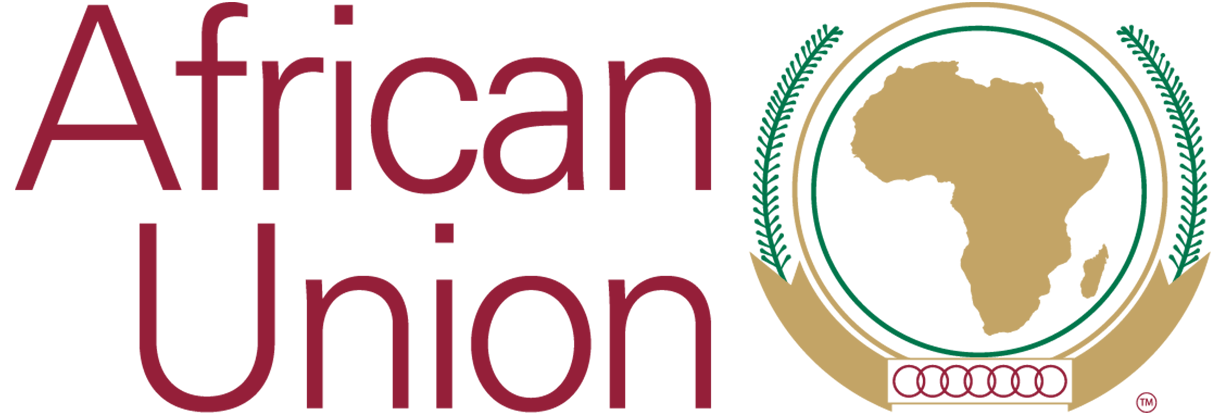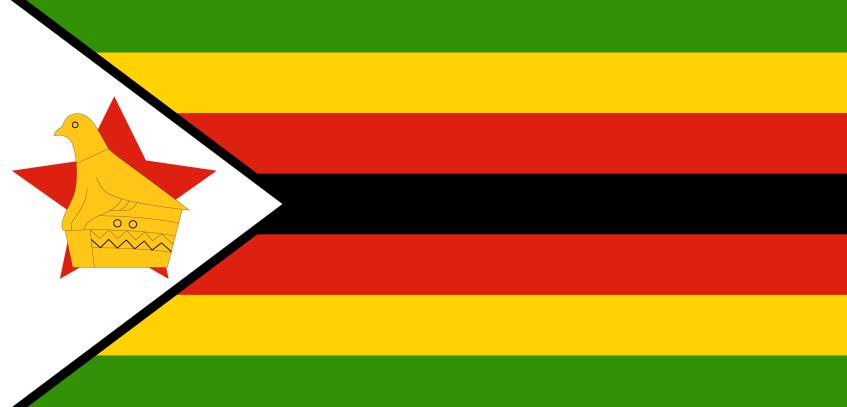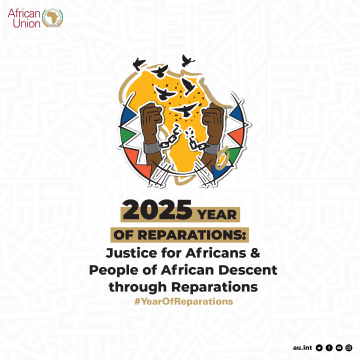INTRODUCTION
On 30 July 2018, Zimbabweanswent to the polls to elect the country’s nextPresident,
Members of the National Assembly andLocal Government Representatives. Theyarethe
first post-independence elections to be held withoutformer PresidentRobert Mugabewho
ruled for 37 years andarewidely seenas an important moment in the country’s democratic
transition.
The African Union (AU) participated in the elections following aninvitation fromthe
Government of the Republic of Zimbabwe by deploying both long-and short-term election
observers on the 1 July 2018 and 23 July 2018, respectively. The Missionwhichis led by
H.E.Hailemariam Desalegn Boshe, former Prime Minister of the Federal Democratic
Republic of Ethiopiaand assisted by H.E. Minata Samate Cessouma, the AU
Commissioner for Political Affairs, comprisesofsixty-four (64) observers –14 long-term
and 50 short-term observers–drawn from AU member states and institutions.
In this preliminary statement, the African Union Election Observation Mission (AUEOM)
offers a summary of key observationsfrom the electoral process thus far, including the
political context, legal framework, election administration, campaign, participation of women
and media environment, as well as election day voting and counting process. This
statement ispreliminary because it isissued while the tabulation and announcement of
results are ongoing and, therefore, an assessment of the entire electoral processcannot be
provided at this stage.
SUMMARY OF KEY FINDINGS
The Pre-Election Environment
Political Context
The elections took place in a generally peaceful and calm environmentwith no major
incidents of violence and restriction on the activities of political parties and candidates
observed. The process was highly competitive as evidenced by the high number of
presidential, national assembly and local council candidates.As an indication of the marked
improvement inthe political space, the AUEOM notes a very low threshold requirement for
registration of political parties and candidates to contest the elections.
Legal Framework
Zimbabwe’s 2018 elections were conducted under animproved legal framework consisting
of the 2013 Constitution, The Electoral Act, other Acts and Legislation, Rules and
Regulations promulgated by Zimbabwe Electoral Commission (ZEC). Some of the
improvements noted in the legal framework that the AUEOM notes include:
•The new 2013 Constitution providesa comprehensive framework to govern the
elections;
•The newElectoral Actand various Regulations supplemented and streamlined
electoral dispute resolution by establishing the Electoral Court with exclusive
jurisdiction to hear electoral appeals, applications and petitions;
•The creation of Multi-Party LiaisonCommittees (MPLC) to enforce the Code of
Conduct and assist ZEC in managing inter-party conflict.
Despite these improvements, the legal framework contains several gaps–for example,
various regulations and the Electoral Act are not properly aligned withthe 2013
Constitution.
Electoral Administration
Zimbabwe Electoral Commission (ZEC) is the sole bodyestablished under the Constitution
with the responsibilityto prepare, conduct and supervise elections, register voters, conduct
and supervise voter education, undertake boundary delimitation,accredit observersand
receive and consider complaints.
The AUEOM found that the Government of Zimbabwe wholly funded the 2018 elections,
which weresubstantiallyconducted by ZEC,with sometechnical support from international
organisations.
Despite some financialchallenges and logistical issues, the Mission observed that ZEC
carried out all the stages of the electoral process in accordance with the electoral timeline
and was fully prepared.It made concerted efforts toengageelectoralstakeholdersat
various stages of the process through the establishment of the Multi-Party Liaison
Committees(MPLCs). While this is a good practice, the Mission however observed that this
platform for interactionand resolution of disputeswas not fully utilisedby all concerned.
The Mission notes that meetings were not consistentlyheld, withsome political parties
expressingdissatisfaction regardingthe manner in which ZEC conducts and reacts to
issues during MPLC meetings.Overall, there was low confidence among many of the
opposition parties thattheMission consulted regardingthe impartialityof ZECand its ability
to conduct transparent and credible elections.
Voter Registration
Following concerns about the inadequacies ofthe 2013 Voters Roll, the ZECundertook an
ambitious process to create a new rollby introducing the Biometric Voter Register (BVR)
systemin order to enhance itsaccuracy and inclusiveness–a process its undertook from
18 September 2017 to 2 December 2017.At the end of the registration process,a total of
5,695,706 were registered, of whom 2,622,516are males (46.1%) and 3,073,190are
females (53.9%).
Given that it was the first time Zimbabwe is using a BVR system to register voters, many
stakeholders have shown keen interest in the procurement of kits, roll out and integrity of
the system. While ZEC consistently assured stakeholders and undertook necessary steps
to ensure the integrityof the BVR system, some opposition parties and civil society
organisations expressed numerous concerns aboutthe accuracy, completeness and
inclusivity of the register. Another concern by political parties and candidates was the late
submission of theFinal Voters Register by ZEC. These concerns were further reinforced by
the failure of ZEC to carry out a proper and independent auditing exercise, which impacted
stakeholder confidence in the register.
Political Participation
The2018 contest witnessed a high level ofparticipation of political parties and independent
candidates in all cadres of representation. The number of presidential candidates has
increased significantly from 5 in2013 (all of whom were male) to 23 in 2018 (of which 4
were women). The increased number of candidates and political parties participating in the
2018 elections is evidence of the improved political space currently prevailing in the
country. The AUEOM observedthat political partiesand candidates were able to freely
associate and function without much inhibition to their rights.
Election Campaign
The AUEOM observed that the election campaign waslargely peaceful, and parties and
candidates were able toexercise their fundamental rights of association, free speech and
assembly without inhibitions or restrictions.Political parties and candidates adopted various
campaign strategies during the campaign period. These included the use ofposters,
billboards,caravans, rallies,t-shirts, ‘vuvuzelas’,door-to-door visitations, rallies and social
mediapostings. All these strategies were implemented in a peaceful manner in adherence
to the Code of Conduct for political parties and candidates.
While the campaign was largely peaceful, there were a few isolatedviolentincidents
observedin Kwekwe districtin Midlands province as well as reports of tearing down of
postersof political opponents. There were also allegations made against the ruling party of
using state resources in its campaign activities, particularly public space and government
vehicles. Opposition parties also complainedabouttheruling party’suse of school children
to attend rallies without parental consent,use ofschool buses and buses belonging to the
Zimbabwe Military Academy (ZMA) and the Zimbabwe Electricity Transmission and
Distribution Company (ZETDC)to ferry party supporters to campaign rally grounds,use of
traditional leaders for campaigning and the distribution of food aid and agricultural inputsas
a means of vote buying, as well as subtle acts of intimidation. While the AUEOM did not
confirmseveral instances of these practices andcannotdetermine the extent to which
these activitieshaveimpacted on the credibility of the electoral process, it is important to
underline that such activities could have provided an unlevelled playing field in the electoral
contest.
Women’sParticipation
The AUEOM notes the constitutional guarantees of equality of participation of Zimbabwean
men and women in all spheres of public life, as well as specific provisions in the electoral
act on women’s participation in the electoral process. While the legal framework
adequately provides for women’s political participationand, indeed, the state took special
measures to promote women’s participation such as the reserved seats for women in the
National Assembly, overall, women’s representation as candidates was generally low. For
instance, although women constituted54% of the registered votersin the 2018 elections,
only 7% of the candidates contesting the elections at all levels were female.
However, the Mission was pleased to seethat 4 out of the 23 presidential candidates were
women,and that the majority of polling staff on election day were women.
The Media
Although the AUEOM has recommended in the past for measures to be undertaken to
guarantee equal access to the State Broadcaster to all contestants during election period
and forthe full implementation of the Broadcasting ServiceActto ensure balanced and
pluralistic media, regrettably,these recommendations werenotimplemented. The media
environment still remains largely polarized.
While the Electoral law mandates ZEC to regulate the media during elections through the
establishment of aMedia Monitoring Committee, ithas been unable to effectively
operationalize this Committee,leading to a media environment that has operated without
any systematic regulation during the 2018 election period. As a result of the foregoing,
both private and state-ownedmedia houses have exhibited a noticeable degree of
polarization characterized by biased reporting and inequitable coverage of political parties
and candidates contesting the elections.
Civil Society Participation
The AUEOM observed a high level of involvement of civil society organisations in civic and
voter education and monitoring of the elections. The Mission notesZEC’sclose
collaborationand cooperationwithvarious civil society organisationsand other relevant
stakeholders in sensitising voters, particularly women, youth and minority groups, which
impacted positively on the electoral process. However, the Mission notes concerns
expressed by civil society organisations regarding the levy of a fee for accreditation of
domestic observers which, to some extent, impacted on their level of participation in the
electoral process. While the imposition of fees and/or charges on domestic observer groups
is lawful, it contravenes Zimbabwe’s international obligations, particularly Article 12(3)of
the 2007 African Charter on Democracy, Elections and Governance, which requestsState
Parties to create conducive conditions for civil society organisationsto exist and operate
within the law.
Election Day
On Election Day, the AUEOM observed the openingand closingin 23polling stations(18 in
urban and 5in rural areas) and voting in 345polling stations(74%in urban and 26%in
ruralareas)in 43districts of the country’s 10provinces. Below is a summary of the
Mission’s observations on Election Day:
•The vast majority of polling stationsvisited opened on time, with only 2 that opened
approximately half an hour late due toreceiptofincorrect materials and delay in
setting up the polling stations.
•Despite the large voter turnout, voting took place in a generally peaceful and orderly
environment.
•The secrecy of the vote was guaranteed in all polling stations visited.
•The vast majority of polling stations visited had a large number of party agents
present –mostly representing Zimbabwe African National Union –Patriotic Front
(ZANU-PF) and Movement for Democratic Change –Alliance (MDC-A) parties –and
were given access to observe, which demonstrates a substantial level of
transparency.
•A number ofvoters were seenturned awayin some polling stations we visiteddue
to various reasons,including being in the wrong stations, failure to verify voter’s
identification, failure to find the voter’s name on both thevotersandexclusion lists,
and duplicate registration.However, corrective measures were taken by polling staff.
•Security personnel were visibly present inside and outside the polling stations visited
buttheir presence was mostly discreet, non-intrusive and professional.
•Most polling stationsvisited were accessible and priority was given to voters with
special needs, including persons with disabilities, the elderly, pregnantwomenand
women with babies.Separate queues to cater for both men and women were
observed, in line with ZEC’s Polling Station Guidelines.
•We observed campaign materials in 28 out of 345 polling stations visited.However,
no campaign activities were observed.
•We observed that ZEC was generally well-prepared for the polls as all essential
election materials were available in adequate quantities in all the polling stations
visited throughout the day.
•Morethan half of the number of polling staff werewomen in all polling stations.
Women were also well represented as party agents and observers in all polling
stations visited.
•Poor lighting was observed in most of the polling stationsusing tents. Although this
was a challenge, votingand counting was not compromised.
•We observed that polling staff largely adhered to the prescribed voting procedures.
Overall, we assessed the performance of polling staffandconduct of polling as
mostlyvery good.However, there is room for improving the procedures for counting
the ballot papers in order to make it simple and less cumbersome.
Conclusion
The 2018 elections is an important moment in Zimbabwe’s democratic transition and
provides an opportunity for the country to change course, in particular, broadening the
political space and allowing citizens to exercise their constitutional rights in a democratic
way. By and large, the process was peaceful and well-administered.
Recommendations
The AUEOM offers the following preliminary recommendations for consideration by the
Zimbabwean stakeholders for improvement on their electoral processes in future:
•Legalframework: There is need to align and harmonise the electoral laws to
comply with the Constitution.
•Political Environment:Continue to maintain the current open and free political
environment,and all stakeholders must refrain from acts thatmay undermine the
integrity of the electoral process orthreaten thecountry’s peace and stability.
•Women’s participation: Considerputtingin place mechanisms to increase
women’s participation inthe electoral process, particularly as candidates.
•Media:In light of the partisan and polarised nature of the media in Zimbabwe,
consider full implementation of the Broadcasting Service Actand ensure equal
access to the State Broadcaster to all contestants during elections.
•Voters Register:ZEC should avail thefinal voters register to political parties,
candidates and other relevant stakeholders within a reasonable time to allow for a
comprehensive voter audit and verification, as well as facilitate effective participation
in the process.
•MPLCs:ZEC should foster dialogue and consultation with stakeholders to enhance
confidence in the electoral processand put measures in place to efficiently
operationalisethe Multi-Party Liaison Committee meetings to improve
communicationwith stakeholders.
Harare, Zimbabwe






